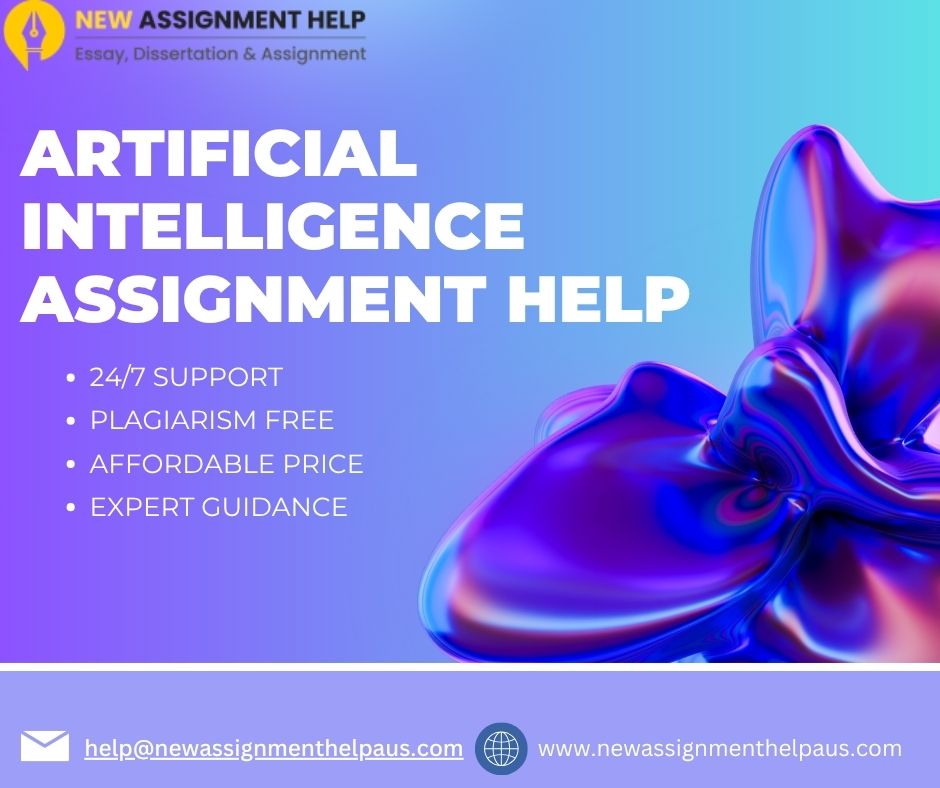Artificial intelligence (AI) has become one of the most sought-after fields in modern computer science. With applications ranging from self-driving cars to intelligent virtual assistants, understanding AI is now a crucial skill for students. If you’re seeking artificial intelligence assignment help, it’s vital to choose the right programming language, as your choice will impact not only your learning curve but also the depth of your project execution. This guide explores the best programming languages for AI assignments and explains why they matter in the context of academic success.
Understanding the Importance of Programming Languages in AI
Before diving into specific languages, it's essential to understand why the choice of programming language matters so much in AI assignments. AI is not just about coding—it involves complex mathematical models, data analysis, and algorithmic thinking. The right programming language can simplify these tasks through pre-built libraries, frameworks, and a supportive community. Moreover, some languages are more suited to certain AI applications than others, such as natural language processing (NLP), machine learning (ML), or robotics.
Your assignments may range from writing simple AI algorithms to developing large-scale systems involving multiple components. Thus, picking a language that fits the requirements of the task and your academic level is essential for achieving better grades and gaining deeper insights into AI principles.
1. Python: The King of AI Programming
When discussing programming languages for AI, Python stands out as the most widely used and beginner-friendly language. Its readability, simplicity, and vast ecosystem make it a top choice among both students and professionals.
Why Python Is Ideal for AI Assignments
- Extensive Libraries: Python offers powerful libraries such as TensorFlow, Keras, PyTorch, Scikit-learn, and NLTK that simplify the implementation of complex algorithms.
- Large Community: The Python community is vast, ensuring you’ll find tutorials, documentation, and forums to assist with any issue.
- Versatility: Whether you are working on image recognition, chatbots, or predictive modeling, Python has the tools you need.
How It Helps in Assignments
Python’s straightforward syntax allows you to focus more on AI logic than on coding complexity. This is especially useful for students working under time constraints or dealing with tight assignment deadlines.
2. Java: Powerful and Scalable
Java is another strong contender in the AI field. While it may not be as beginner-friendly as Python, Java is widely used in large-scale enterprise applications that incorporate AI.
Strengths of Java in AI Development
- Platform Independence: Java programs can run on any device that supports the Java Virtual Machine (JVM), making it ideal for cross-platform development.
- Strong Performance: Java is faster than Python, making it suitable for real-time applications like robotics and natural language processing systems.
- Object-Oriented Programming (OOP): Its OOP nature allows for modular programming, which is useful in large-scale AI projects.
Use in Assignments
Java is particularly effective in assignments that require high performance and scalability. While it may require more lines of code than Python, it can teach you important software engineering principles alongside AI concepts.
3. R: The Statistician’s Choice
If your AI assignment leans heavily toward data analysis and machine learning models, R might be the right tool. R is a language primarily used in statistics and data science, but its capabilities in AI have expanded rapidly.
Why Choose R for AI Tasks
- Data Handling: R provides excellent tools for data visualization and statistical computing.
- Machine Learning Packages: Packages like
caret,randomForest, andxgboostmake R a competitive choice for AI tasks. - Graphical Capabilities: R shines when it comes to creating visual reports, which can enhance the presentation of your assignment.
Suitability for Students
If you're from a statistics or data science background, R might feel more intuitive than Python or Java. It is a great tool for assignments that emphasize predictive modeling and data-driven decision-making.
4. C++: For Performance-Critical AI
C++ is known for its speed and control over system resources. Though it is not as commonly used in modern AI development due to its complexity, it remains relevant in certain niches such as game AI, embedded systems, and robotics.
Features That Stand Out
- Speed and Efficiency: C++ is one of the fastest languages, making it useful where real-time performance is critical.
- Memory Management: Offers fine-grained control over memory, which is vital in hardware-constrained environments.
- Legacy Systems: Many existing AI applications and libraries in robotics and game development use C++.
Why Use It in Assignments
While C++ is not the easiest language to learn, assignments that involve lower-level programming or optimization can benefit greatly. If your course includes topics like neural network implementation from scratch or game AI, C++ is a solid choice.
5. JavaScript: AI on the Web
With the rise of web-based AI applications, JavaScript has found a place in AI development, particularly through libraries like TensorFlow.js and Brain.js.
Benefits of JavaScript for AI
- Browser Integration: Allows you to run AI models directly in the browser.
- Lightweight Applications: Suitable for lightweight, interactive AI apps such as recommendation engines or live chatbots.
- Full-Stack Development: JavaScript enables full-stack development when used with frameworks like Node.js.
Use Case in Assignments
For students building AI-based web applications, JavaScript can be highly effective. It’s also great for demonstrating your project in real time to peers or professors, making your assignment more interactive and engaging.
6. MATLAB: Engineering and Academia
MATLAB is widely used in academia and industries like aerospace and automotive for technical computing, simulations, and prototyping. Though not a general-purpose programming language, it has specialized toolboxes for AI and deep learning.
What Makes MATLAB Unique
- Simulation Tools: Ideal for AI simulations and modeling complex systems.
- Toolboxes: Offers dedicated AI, ML, and Deep Learning toolboxes with built-in functions.
- Educational Focus: Commonly used in universities for teaching mathematical modeling and algorithm development.
Assignment Relevance
MATLAB is excellent for assignments that require mathematical modeling, such as signal processing or control systems using AI. If your course curriculum uses MATLAB, it is often the best language to use.
7. Julia: The Newcomer in AI
Julia is a newer language designed specifically for high-performance computing and numerical analysis. It is gaining traction in AI research due to its speed and ease of use.
Julia’s Strengths
- Speed Comparable to C++: Designed for performance without sacrificing usability.
- Scientific Computing: Ideal for numerical simulations and scientific applications.
- AI Libraries: Emerging support with libraries like Flux.jl for machine learning.
Role in Assignments
Julia can be an exciting option for research-heavy AI assignments. If you're looking to stand out or dive into bleeding-edge AI topics, Julia provides a strong foundation.
Choosing the Right Language for Your Assignment
There is no single "best" language for AI assignments—your choice should depend on the assignment’s objectives, your background, and the tools recommended by your instructor.
Consider These Questions:
- Are you building a prototype or a full application?
- Do you need real-time performance?
- Are you focusing more on theoretical or applied AI?
- What tools and libraries are allowed or encouraged by your course?
For general-purpose AI assignments, Python remains the safest and most versatile option. For specialized tasks like simulations, MATLAB or R might be preferable. If you're pursuing a software engineering angle, Java or C++ could provide more structure and performance.
Final Thoughts on Artificial Intelligence Assignment Help
Selecting the right programming language is a critical step in securing effective Artificial Intelligence Assignment Help. Each language discussed—Python, Java, R, C++, JavaScript, MATLAB, and Julia—has its unique strengths and limitations. The ideal choice depends on your specific assignment needs, your familiarity with the language, and the tools available to you.
By understanding the capabilities and best use cases of each language, you empower yourself to create more accurate, efficient, and impressive AI assignments. Whether you’re simulating neural networks, analyzing data patterns, or building smart systems, the right language is the bridge between theoretical knowledge and practical execution. Choose wisely, and let your AI assignments reflect both your intelligence and strategic thinking.






Comments